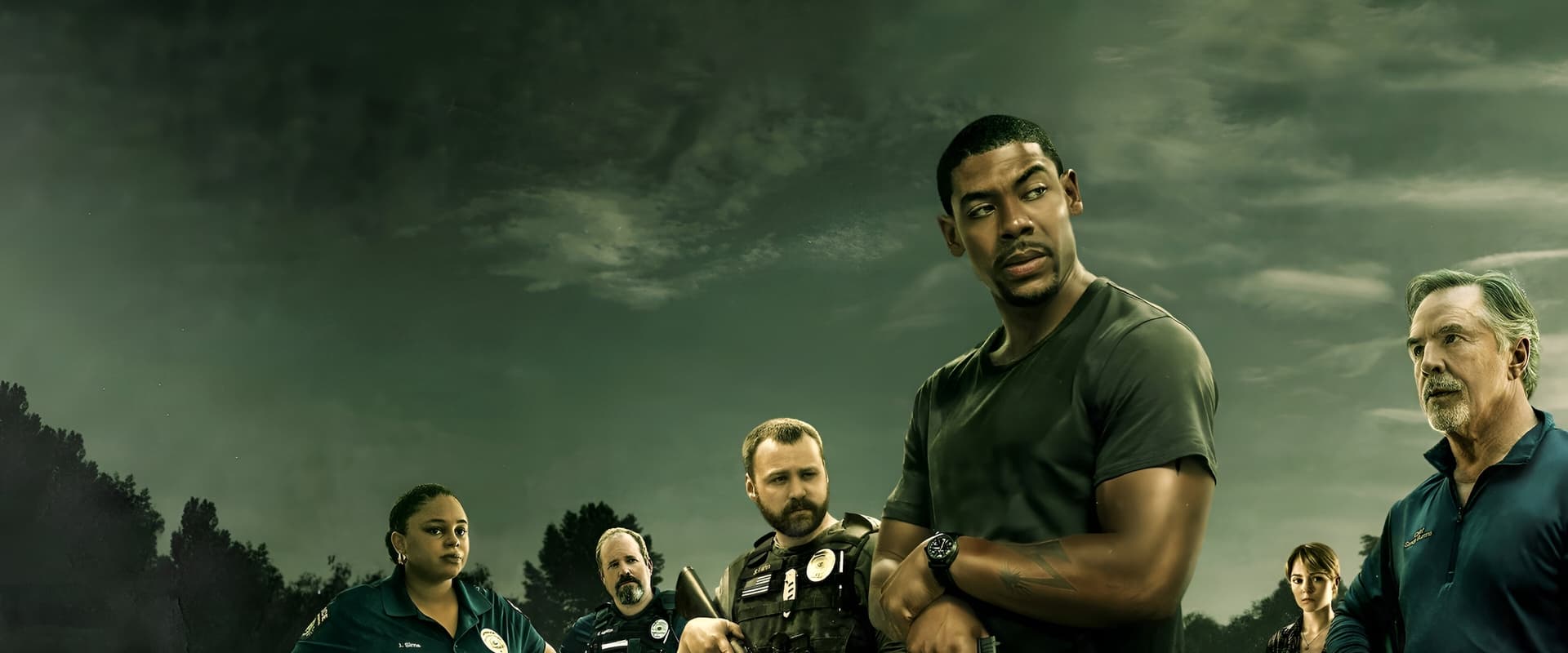Stop me if you’ve heard this before: a small town, a crooked police force, an ex-Marine with more guts than common sense, and a rain barrel full of bad odds. But Jeremy Saulnier’s “Rebel Ridge” doesn’t give you the pleasure of seeing the expected bullet ballet. No—Saulnier is in his own, off-speed league. I went in fully bracing myself for a slow-burn revenge bloodbath in the “Blue Ruin” mold, but what Saulnier does here is cooler than that. Literally: cool as fuck.
The movie is a fist to the jaw of law-and-order rot, but—here’s the surprise—it’s delivered with a smile that doesn’t relish the gore. When Terry Richmond (Aaron Pierre, in a performance so magnetic it should have its own gravitational field) rides into Shelby Springs, Louisiana—all muscle and blistered conscience—you brace for carnage. Yet what stays in your mind is not the slaughter, but the measured cleverness of his moves. Pierre is an ex-Marine unspooling himself in this swamp, locked and loaded not so much for payback as for cleanup. He’s like Rambo if Rambo moonlighted as a crisis negotiator. Saulnier dials down the brutality (if not the tension), and the result is as satisfying as watching a master thief crack a safe with ballet slippers—non-lethal badassery that’s fun as hell to watch.
The echoes of “First Blood” are here—in the whiff of ’80s, the contempt for small-town authority, the hero’s solitary dignity grinding up against bureaucratic sleaze. But “Rebel Ridge” is built for now: not in the way it rubs your face in “message” filmmaking, but in how the corruption just oozes from the pores of everyone in badge or bench. Don Johnson shows up as Chief Burnne, casually terrifying like a country-fried Colonel Kurtz; Emory Cohen slithers into his role so totally you don’t remember the actor, only the grease left behind.
It wouldn’t be a Saulnier film without a certain hair-on-fire tension that puts your nerves through a woodchipper. Does the momentum flag a bit in the middle? Sure—I wish Saulnier had kept the afterburners on. But the ending—good lord, that ending—scratches an itch, tying off the plot threads with the taut efficiency of a Marine double-knot. The last thirty minutes are sheer, pent-up release; the kind of muscular, economically-structured payoff 90 percent of Hollywood’s “thriller” hacks could only dream of. And still, just for fun, a seam is left open for a sequel—a light winking on in the gloom.
Saulnier’s direction has that signature thing: economic, muscular, never showy but always a punch ahead of the audience. What a marvel to see a script that assumes the people watching it have an IQ above that of a potted ficus. The opening gives us prismatic glimpses of the story to come—the kind of “smart structure” you rarely see outside television these days. Plot points whiz by with the reckless glee of a minnow squirming past a heron’s beak.
And yes, Netflix—you finally got a winner. Maybe it took Saulnier sweating through production hell (with John Boyega bailing on him mid-shoot, forcing a total re-start) to make it happen, but the result feels diamond-hard. Aren’t the best movies the ones forged under pressure, when everything that could go wrong nearly did? Hell, I’d even say it outright: it’s one of the best Netflix originals I’ve streamed—and I made one of them.
AnnaSophia Robb supplies her own light as Summer McBride—a character who exists in the crosshairs of small-town rot, but never as a victim, always as another engine of the plot. David Denman and Zsané Jhé do quietly sharp work as cops with knotted loyalties. (You want to hate the bad ones, and then you want to wring their necks yourself.)
Saulnier is BACK, and anyone watching the streaming graveyard of flashy, anodyne thrillers should be standing on their couch, yelling for more. Let this man keep making movies, dammit! He delivers those rare thrills you feel in your spinal cord—the kind of muscular, unsentimental adventure that Hollywood abandoned right around the time Iron Maiden stopped rocking so hard.
And is there something to be said for restraint? For dialing down the blood to let the suspense breathe, for making us do a little thinking ourselves? “Rebel Ridge” trusts you to keep up, and rewards you if you do.
So what’s left at the end, but the sense that this could be the start of a new Saulnier epoch—a movie so tough, so (yes) cool as fuck, you want to see him give the rest of American cinema a black eye. Here’s hoping he gets the chance.
Now, Netflix—don’t just give this movie an Emmy. Give Jeremy Saulnier the keys to the kingdom. Or at least, the keys to another truck that can plow through every cop car in the American South.


